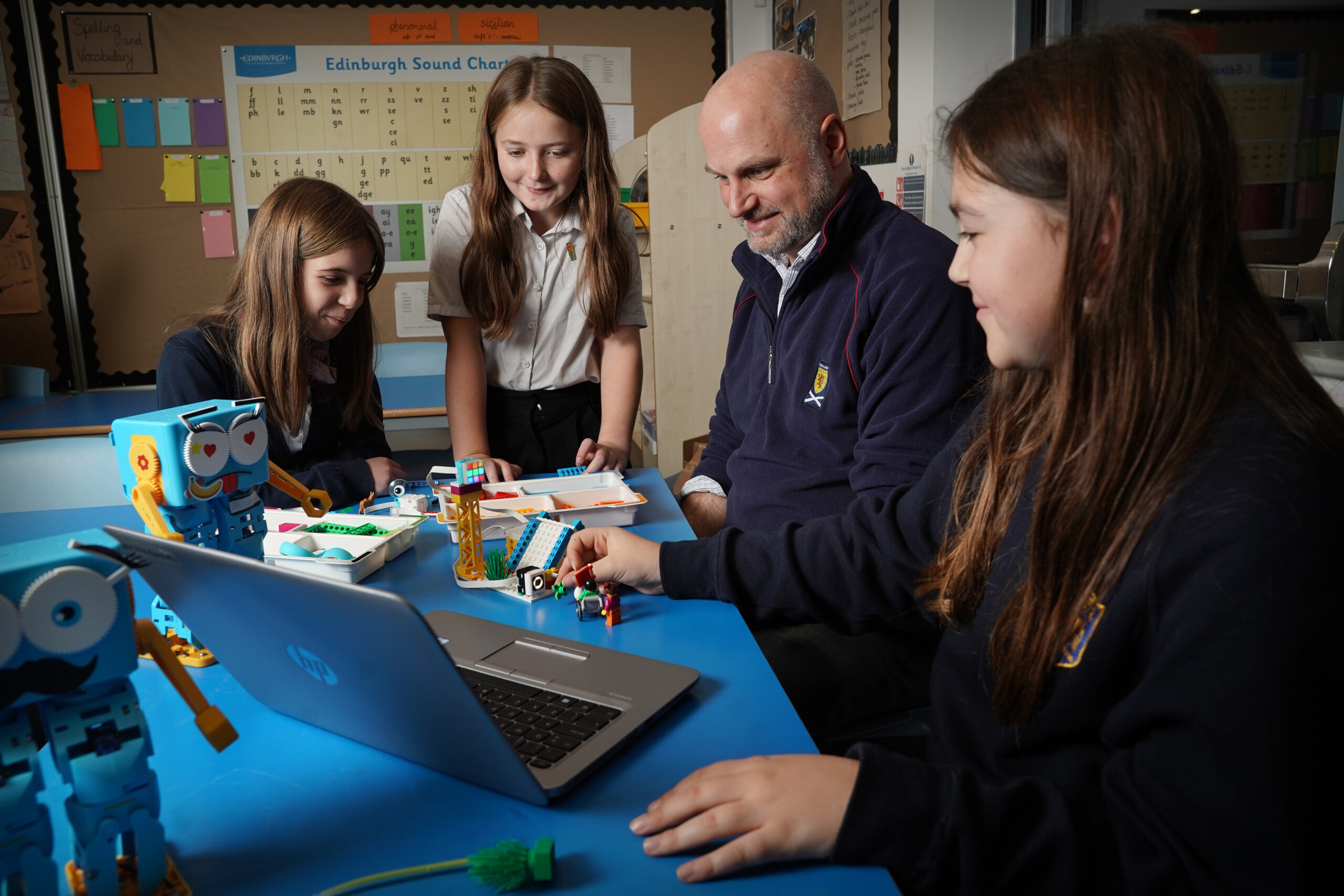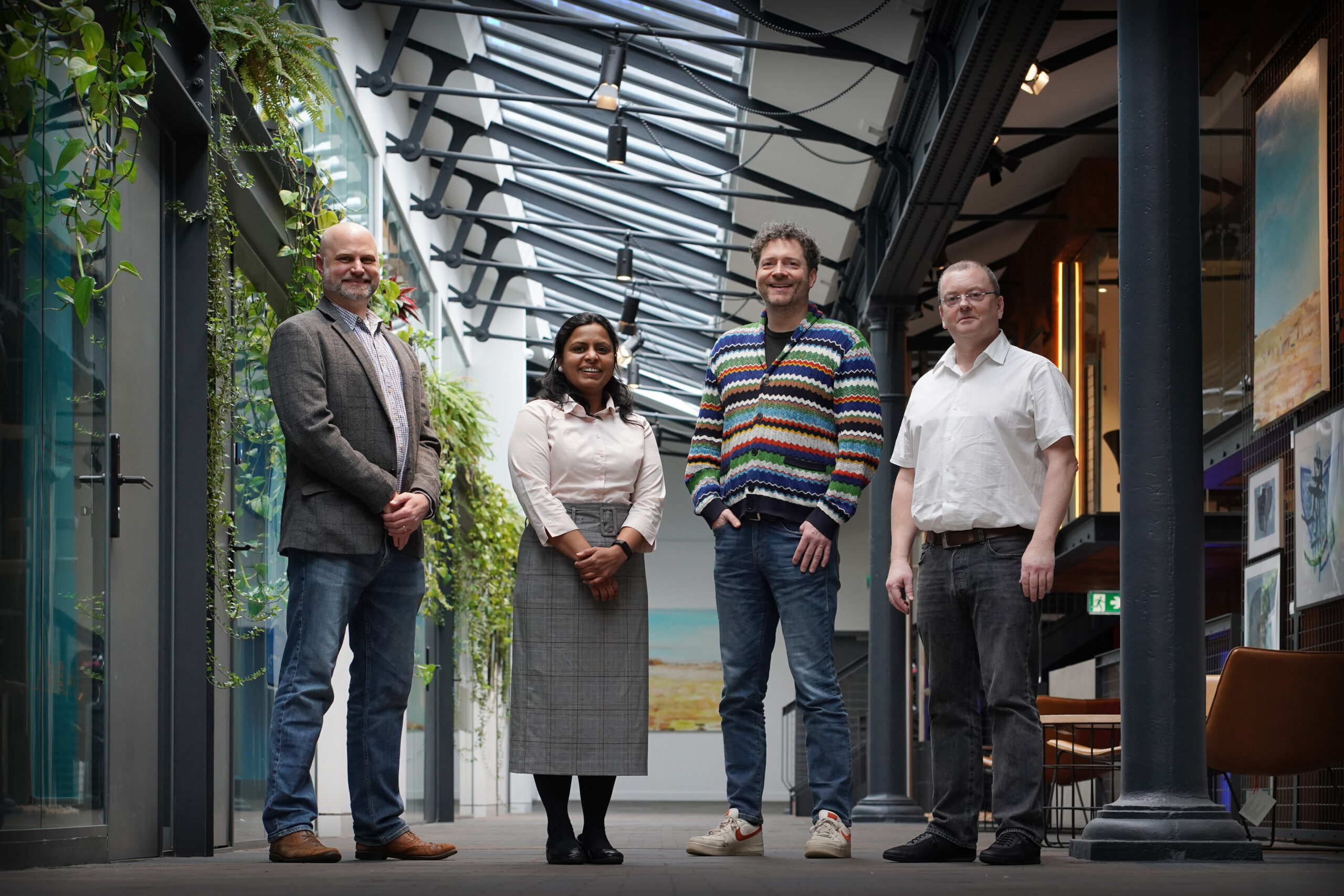Digital Xtra Fund delivers 26 grant awards totalling £110k to local tech and coding clubs for young people across Scotland
![]()
Digital Xtra Fund will be awarding 26 grants totalling £110,000 to local tech and coding clubs across Scotland this year. The grants span 18 local authorities, with an outreach of approximately 3,000 children and young people.
Kraig Brown, Digital Xtra Fund’s Partnership and Development Manager said: “We received 143 applications this year, compared to 94 last year and around 60 per year before Covid. This clearly shows an increasing determination to positively engage young people with tech both in and out of the classroom. We also saw a higher percentage of applications for local, community-based tech and coding clubs as opposed to larger events. These clubs usually run for 6-8 weeks multiple times a year, allowing educators to create a more enriching and impactful experience for learners. This year’s initiatives are also, once again, planning to engage a higher percentage of girls than boys. This is incredible and shows the value of extracurricular activities like these.”
This year’s grants include the ‘NextGen Coding Club’ by the Association for Black and Minority Ethnic Engineers in Aberdeen, ‘Roving Robots’ by Comhairle nan Eilean Siar in the Western Isles, an all-girls’ ‘DigiSTEM Club’ in East Renfrewshire, the ‘Hillhead Digi Den and Technology Playground’ by Hillhead Primary School in Glasgow, ‘Tech Sheds’ at three libraries in Midlothian, and the ‘St Andrews RC Primary Coding and Robotics Club’ in Dundee.
 This marks the eighth cohort of tech initiatives since Digital Xtra Fund was launched in 2016. The charity supports extracurricular activities at the primary and secondary school stage to drive digital skills and has secured nearly £1 million for tech clubs and initiatives around the country since its inception.
This marks the eighth cohort of tech initiatives since Digital Xtra Fund was launched in 2016. The charity supports extracurricular activities at the primary and secondary school stage to drive digital skills and has secured nearly £1 million for tech clubs and initiatives around the country since its inception.
The Benzies Foundation and Outplay Entertainment are two new backers for 2023/24, joining a list that includes Baillie Gifford, CGI, Chroma Ventures, and J.P. Morgan as well as Accenture, Cirrus Logic, Incremental Group, ScotlandIS, and Skyscanner. The Scottish Government will once again contribute £100,000 to the Fund in 2023/24, including matching industry support.
A spokesperson for Outplay Entertainment said: “The Outplay Academy is thrilled to partner with Digital Xtra Fund in supporting local tech and coding clubs for young people across Scotland. Our commitment to fostering creativity, innovation, and inclusion aligns perfectly with the values of the Outplay Academy and the mission of Digital Xtra Fund. Together, we look forward to empowering the next generation of digital leaders and inspiring them to reach new heights in the world of technology.”

Digital Xtra Fund will also soon launch Code Like Kids, a new learning and development opportunity aimed at industry and corporate executives. “We see companies become more connected to supported projects after active participation”, Kraig Brown explains, “however, we also received feedback that while they were keen to engage with young people, staff were anxious doing so being unfamiliar with tools such as block coding or the kit found in many clubs, so we created Code Like Kids. Then we realised it was also a fantastic team building and learning opportunity for all companies.” Participants will get hands-on with popular devices such as micro:bits, Sphero indis, LEGO SPIKE Prime, or Marty the Robot while also building skills such as teamwork, creativity, and problem solving.
Brown added: “Companies will be able to book a Code Like Kids session with a donation to the Fund meaning not only will they be giving their staff a fun and unique experience, but they will also be enabling more tech activities for young people across Scotland. It’s a win-win.”
(Headline image from recent Insp-Hire event by SmartSTEMs and Nine Twenty. Photographer: Malcolm Cochrane)



 An exciting and unique opportunity is available for a motivated individual to join Digital Xtra Fund as a Community & Grants Officer. The Officer will support grant recipients in achieving their targets, outcomes, and objectives and will explore new opportunities to engage and excite young people in tech. The preferred candidate will have a passion for technology as well as previous experience working with schools or educational organisations or working for a grants provider focussed on young people.
An exciting and unique opportunity is available for a motivated individual to join Digital Xtra Fund as a Community & Grants Officer. The Officer will support grant recipients in achieving their targets, outcomes, and objectives and will explore new opportunities to engage and excite young people in tech. The preferred candidate will have a passion for technology as well as previous experience working with schools or educational organisations or working for a grants provider focussed on young people. About Digital Xtra Fund
About Digital Xtra Fund 
 Digital Xtra Fund is
Digital Xtra Fund is 
 Kraig Brown, Digital Xtra Fund’s Partnerships and Development Manager, said: “We’re extremely pleased to be able to support many more initiatives this year, as well as a wider range of activities. This year’s applications show a renewed appetite for digital skills initiatives after a challenging couple years. We know we need to positively engage more of Scotland’s young people with digital tech to help them reach their potential in the future economy and an increasingly digital world, and extracurricular activities are the perfect medium to do this.”
Kraig Brown, Digital Xtra Fund’s Partnerships and Development Manager, said: “We’re extremely pleased to be able to support many more initiatives this year, as well as a wider range of activities. This year’s applications show a renewed appetite for digital skills initiatives after a challenging couple years. We know we need to positively engage more of Scotland’s young people with digital tech to help them reach their potential in the future economy and an increasingly digital world, and extracurricular activities are the perfect medium to do this.” Sam Pattman, Philanthropy Manager, Baillie Gifford said: “Baillie Gifford is very pleased to continue its support of Digital Xtra Fund. Through our business, we know the importance of digital skills and ensuring young people are prepared for what’s ahead of them. Extracurricular activities can reach and engage a wider range of young people, as demonstrated by the variety of grant recipients this year. We have always been impressed by the charity’s ambition and its reach across Scotland, and look forward to hearing more from the supported initiatives as the year moves forward.”
Sam Pattman, Philanthropy Manager, Baillie Gifford said: “Baillie Gifford is very pleased to continue its support of Digital Xtra Fund. Through our business, we know the importance of digital skills and ensuring young people are prepared for what’s ahead of them. Extracurricular activities can reach and engage a wider range of young people, as demonstrated by the variety of grant recipients this year. We have always been impressed by the charity’s ambition and its reach across Scotland, and look forward to hearing more from the supported initiatives as the year moves forward.”
 Chris van der Kuyl, Principal, Chroma Ventures, said: “Our investment in human talent must begin at an early age through primary and secondary, en route to colleges, universities, or apprenticeships. Extracurricular activities like those funded by Digital Xtra Fund play such an important role for young people on that pathway, especially for those who may not have computing opportunities in the classroom.”
Chris van der Kuyl, Principal, Chroma Ventures, said: “Our investment in human talent must begin at an early age through primary and secondary, en route to colleges, universities, or apprenticeships. Extracurricular activities like those funded by Digital Xtra Fund play such an important role for young people on that pathway, especially for those who may not have computing opportunities in the classroom.” Kraig Brown, Digital Xtra Fund’s Partnership and Development Manager said: “We are very excited to be able to offer this
Kraig Brown, Digital Xtra Fund’s Partnership and Development Manager said: “We are very excited to be able to offer this 
 In 2021, Digital Xtra Fund worked with government and industry partners to identify, finance, and support 22 initiatives for young people aged 16 and under – ranging from coding clubs at four schools in Angus, a ‘Games for Good’ programme at Heart of Midlothian FC’s Innovation Centre in Edinburgh, introducing hundreds of young people to cyber security at Aberdeen Science Centre, and a COP26-related collaboration around climate tech with SCDI’s Young Engineers and Science Clubs.
In 2021, Digital Xtra Fund worked with government and industry partners to identify, finance, and support 22 initiatives for young people aged 16 and under – ranging from coding clubs at four schools in Angus, a ‘Games for Good’ programme at Heart of Midlothian FC’s Innovation Centre in Edinburgh, introducing hundreds of young people to cyber security at Aberdeen Science Centre, and a COP26-related collaboration around climate tech with SCDI’s Young Engineers and Science Clubs. “It is also no longer enough to just teach young people how to use technology, we need show them how it can be applied to real life – particularly in areas such as climate tech or health tech where it can make such a positive impact. Supporting innovative and meaningful projects is key to inspiring the next generation of digital leaders. Engaging with industry to help provide this context and guidance is also increasingly important. Yes, there are a lot of moving parts and it isn’t always easy linking those parts together, but we are talking about a fundamental change to the education and skills landscape for young people – of course it will be challenging. But it has to happen and Digital Xtra Fund is at the forefront of that change.”
“It is also no longer enough to just teach young people how to use technology, we need show them how it can be applied to real life – particularly in areas such as climate tech or health tech where it can make such a positive impact. Supporting innovative and meaningful projects is key to inspiring the next generation of digital leaders. Engaging with industry to help provide this context and guidance is also increasingly important. Yes, there are a lot of moving parts and it isn’t always easy linking those parts together, but we are talking about a fundamental change to the education and skills landscape for young people – of course it will be challenging. But it has to happen and Digital Xtra Fund is at the forefront of that change.”
 CGI, one of the largest IT and business consulting services firms in the world, which has offices in Glasgow, Edinburgh, Aberdeen and the Borders, has continued and increased its support for 2021/2022.
CGI, one of the largest IT and business consulting services firms in the world, which has offices in Glasgow, Edinburgh, Aberdeen and the Borders, has continued and increased its support for 2021/2022.
 The blueprint includes a commitment to ensuring every schoolchild has access to the technology they need to support their education and recruitment of 3,500 additional teachers and classroom assistants. Kraig said: “The commitment to ensuring every schoolchild has access to technology really stands out for me, but let’s make sure this isn’t just a box ticking exercise. It’s great to give youngsters a Chromebook or iPad, but they need to know how to use it – and I don’t mean just tapping apps – but actually know how these devices function.
The blueprint includes a commitment to ensuring every schoolchild has access to the technology they need to support their education and recruitment of 3,500 additional teachers and classroom assistants. Kraig said: “The commitment to ensuring every schoolchild has access to technology really stands out for me, but let’s make sure this isn’t just a box ticking exercise. It’s great to give youngsters a Chromebook or iPad, but they need to know how to use it – and I don’t mean just tapping apps – but actually know how these devices function. Although it is not a perfect solution, another possibility is to recruit and train industry experts to come into classrooms. Digital Xtra Fund is very active in this area recently hiring a Community & Grants Officer to facilitate engagements between their industry partners and grant recipients.
Although it is not a perfect solution, another possibility is to recruit and train industry experts to come into classrooms. Digital Xtra Fund is very active in this area recently hiring a Community & Grants Officer to facilitate engagements between their industry partners and grant recipients.

 Recruiting more computer science teachers or introducing these skills earlier won’t help if there isn’t uptake from young people in secondary and beyond. How can the question of exciting students about building computing skills be successfully addressed? He believes the learning must be directly connected to real life.
Recruiting more computer science teachers or introducing these skills earlier won’t help if there isn’t uptake from young people in secondary and beyond. How can the question of exciting students about building computing skills be successfully addressed? He believes the learning must be directly connected to real life.